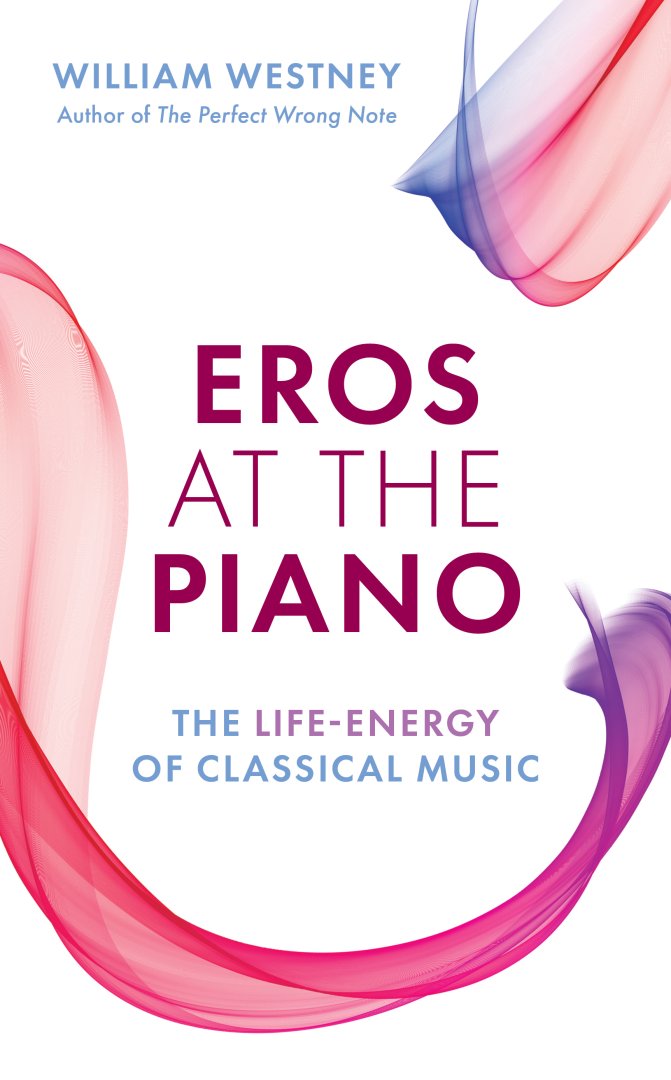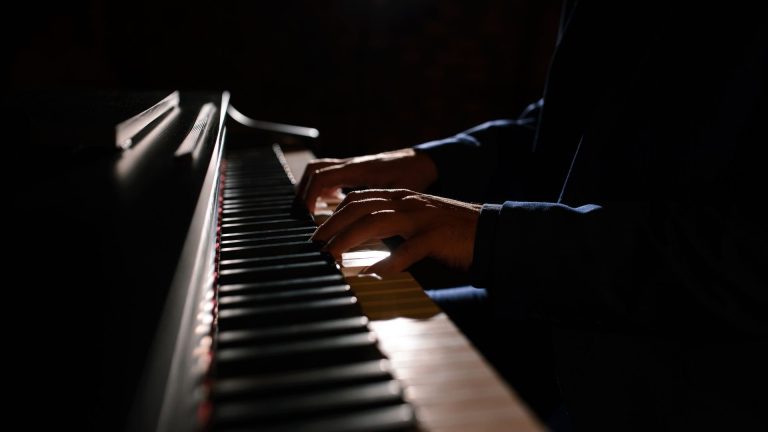“Eros at the piano,” by pianist and pedagogue William Westney,* is a goldmine of wisdom. This book is a witty, articulate, and conversational style tome about life with the mighty beast – the grand piano. Applying the word “Eros” here may initially suggest something on the secular side, but the 250+ pages (published in 2023 by Rowman and Littlefield) actually give the reader a downright sacred screed (without the yawn factor) that reveals the lovely secret recipe for becoming an accomplished performer of classical music – or any music for that matter.
It’s also about the intangible musical connections to audiences, the self, the instrument, the discipline, the knowledge, the energy, the process, but even more about the human heart as the energetic engine of the entire experience.
Real-life examples
The book is divided into 10 chapters that encompass topics like practicing, performing, tone, flow, teaching, enjoyment, dissolving boundaries like stage fright, and importantly, defining and employing Eros in the context of music-making on stage or in the studio. His humorous writing style helps mitigate the stream of pressures that performing artists encounter.
The book’s introduction gives us an enticing prelude to what’s inside:
“A participant in a performance workshop plays the same Bach solo three different ways in succession, experimenting with various interpretive choices. The hope is to find an approach that will bring the centuries-old score convincingly to life. The last attempt – for some reason – rivets the group’s attention as none of the others had, and the final note was greeted with spontaneous applause … The ensuing conversation reveal[ed] a consensus that it felt more ‘honest’… than all the others. Yet no one [could] determine what musical ‘honesty’ might actually mean…”
This vignette is one of many that Westney presents as examples of working situations, where his own and other pedagogues’ masterclasses experiment with creative methods to solve technical and interpretive problems. Among the many acceptable ideas, there is one that Westney advocates to be the most consistently successful: using the myriad essences of Eros (explained in impressive and entertaining detail in the book) to help create authentic and palpably heartfelt performances.
Love, a real-life app
Dedicated to his beloved piano professor Leopold Mittman (1904-1976), the book sports many sage quotes from him, as Westney speaks of his own personal journey from naïve student to the Nirvana level that he proscribes here.
Westney also quotes Plato, Aristotle, Descartes, Wittgenstein, Jung, H.G. Wells, Aldous Huxley, and many contemporary writers that reference the mysteries of organized sound. He leaves no literary stone unturned when he focuses on the compelling tug-of-war between Eros (emotion and love) and Logos (logic and focus) to integrate precision with passion, and enjoy the spontaneous “flow” state in front of an audience.
Westney’s personal accounts of “whole body sensations of intoxication, emotional empathy, and exchanges of exhilarating energy with others” while performing are examples of the pure physicality that can occur between performer and listener – a greatly expanded understanding of what Eros can encompass and affect anyone who hears or performs music.

As a professional singer, I have experienced the same electrifying sensations Westney described when I heard the great Wagnerian soprano Birgit Nilsson sing; conversely, a person in the back row in one of my concert audiences had what I thought to be a seizure when I sang a high C. After the concert she apologized to me for her odd disruption, blaming it on the high note’s power. I told her: “I totally understand.” When those kinesthetic vibrations are released into the acoustics of a concert hall, I feel the ecstasy. My personal example of that is hearing the sound of eight French horns at full volume in the “Ride of the Valkyries” – one that thrills every cell in my body.
Westney frequently gives Plato some substantial ink: one example being the great Greek’s musing on Eros as “the creative arousal that drives the world forward.” Like love, and as Westney writes: “because music affects human beings so tangibly, perhaps it might be thought of as a sort of life form itself, a life force in the world.” An existential app without end.
He proves here that that life form/force, when applied to any endeavor, but especially music, imbues it with evanescent power. As proof, there is an entire chapter devoted to a research project at Texas Tech University – a pilot study where four people were scientifically measured while they performed short piano pieces in a laboratory. The experiment was able to capture “that mysterious something” as he calls it, “namely, Eros in action.”
“Eros at the piano” is a scholarly, yet exhilarating read about applying the pleasure principle in its most life-affirming way; while also an excellent guide for students and teachers, it’s essentially a comprehensive masterclass for everyone to comprehend the profound ecstasy that music is.
***
*After winning the top prize in the Geneva International Competition, he appeared thereafter as soloist with such orchestras as l’Orchestre de la Suisse Romande, and the Houston, San Antonio, and New Haven Symphonies. He holds a bachelor of arts degree from Queens College in New York and a master’s and doctorate in performance from Yale University. He has given solo recitals on four continents, including appearances at New York’s Lincoln Center; the National Gallery and Phillips Collection in Washington DC; St. John’s Smith Square in London.
As an educator, he is a distinguished professor emeritus at Texas Tech University. His trail-blazing “Un-Master Class” performance workshops were featured in a New York Times article, and are in demand in the US and abroad. His CDs include piano etudes by Stephen Heller and Grieg’s “Lyric Pieces”. His first book, “The Perfect Wrong Note” was published in 2003 to critical acclaim.











